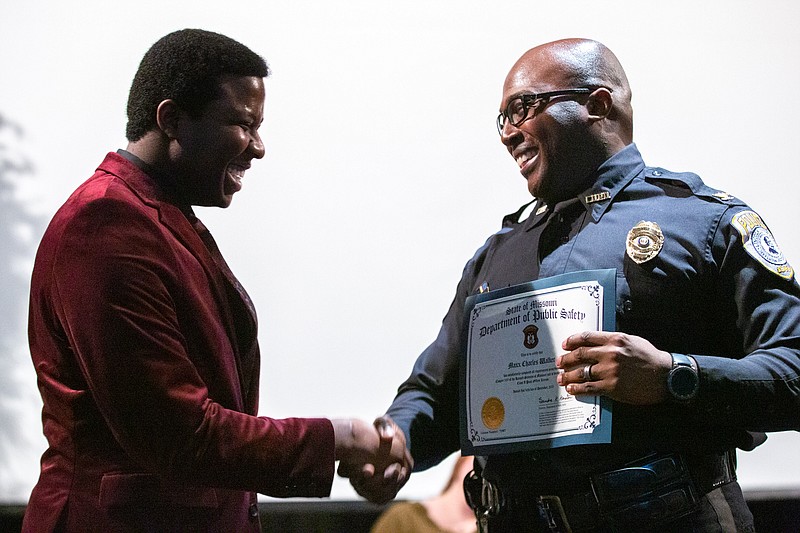Less than a year after it started, the Lincoln University Law Enforcement Training Academy is expanding to include virtual reality simulators.
Lincoln, the only historically Black college to have a police academy, graduated five officers Thursday night. The new officers join nine students who graduated with the first class in June.
LU Police Chief Gary Hill said the past semester went well, despite five students not completing the program.
The second class began with 10 students, but Hill said half didn’t make it to the finish line for various reasons.
With a smaller class size, Hill said the academy was able to offer more hands-on, practical experience to the future police officers.
The students underwent training in which they encountered domestic violence calls, traffic stops, burglary scenarios and scenes that required de-escalation techniques.
To train the officers on how to handle domestic violence situations, Hill said married couples from the community role-played as victims and perpetrators. The students were then dispatched in patrol cars, used radios to communicate and applied what they learned in the classroom to the scene.
Simulated traffic stops worked in the same way, Hill said, but students experienced the varying levels of a traffic stop, from minor infractions to someone resisting arrest.
The students most recently completed crisis intervention training with help from the Missouri Department of Corrections, Hill said. That training involved role-players acting out situations involving people with mental health concerns and suicide victims.
“We want to just make sure that we give the officers, the recruits, everything that they need to be successful out on the streets,” Hill said. “The practical portion of our academy — it has to happen. That’s the most important part of it.”
Hill, who also serves as Lincoln’s vice president for campus culture, said that practical portion of the academy will be further developed for the next class.
The Lincoln University Law Enforcement Training Academy received a $125,000 grant to further de-escalation training, which Hill said will be used to purchase two virtual reality systems.
Those systems will offer a better immersive experience, Hill said, so students have more experience with de-escalation scenes, don’t-shoot scenarios and social service events.
“We’re going to do some renovations to one of the rooms that’s in our academy and turn it all into a complete virtual reality training room,” Hill said.
The police academy has also been exploring internship opportunities with state agencies, like the Department of Public Safety, but those have moved to the back burner, Hill said.
The university’s contact with the state retired and an interim replacement has been appointed, so details are still being worked out, Hill said.
The academy’s next class, which currently has 11 recruits, begins Jan. 10.
Hill said he’s hopeful all 11 graduate from the academy, but sometimes financial constraints, family issues at home or failing the required assessment stand in the way.

